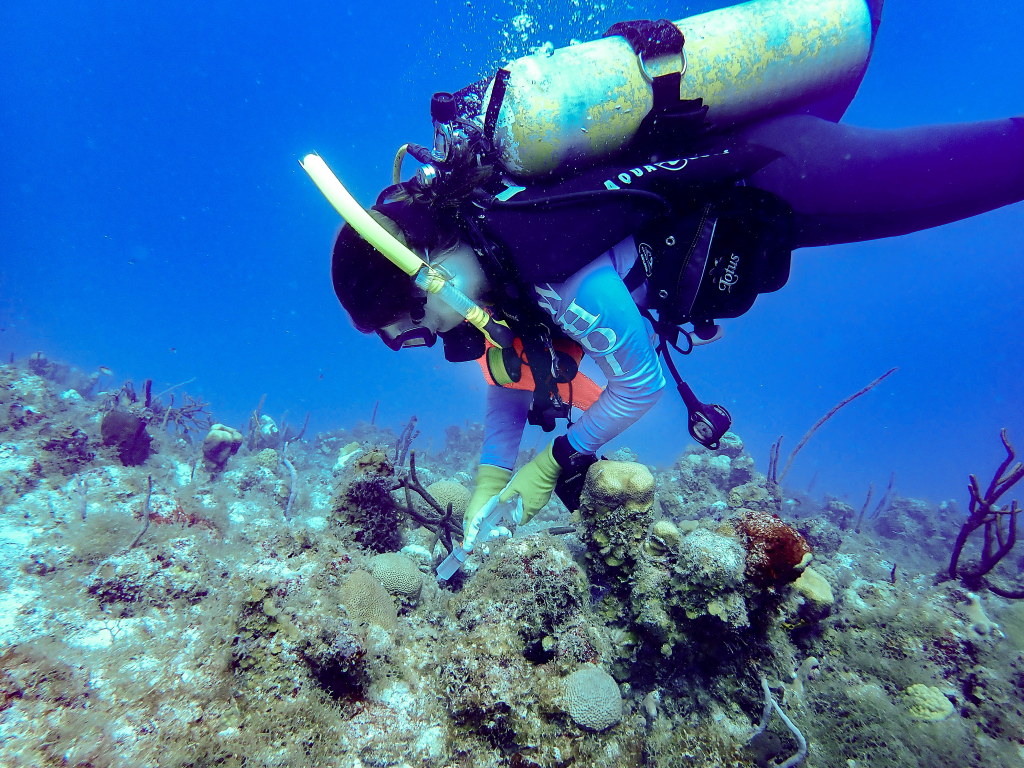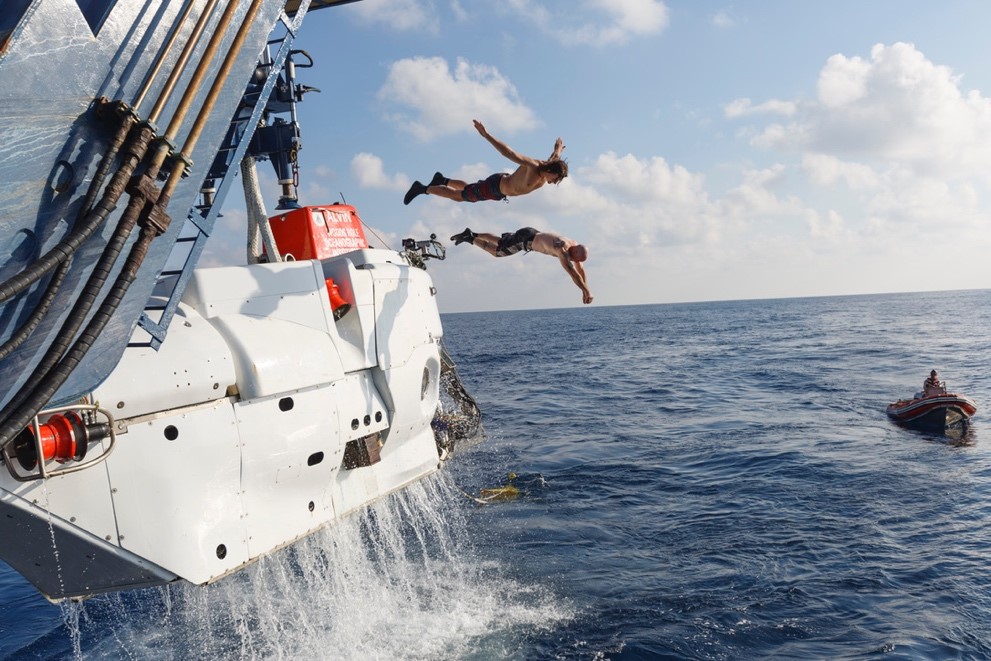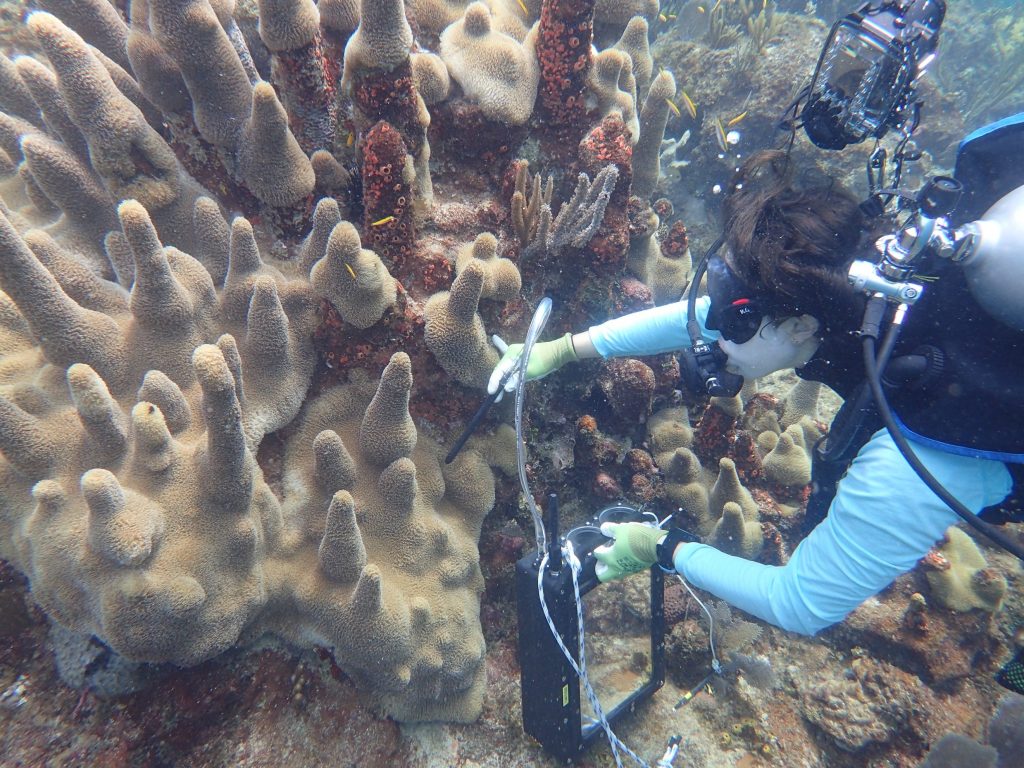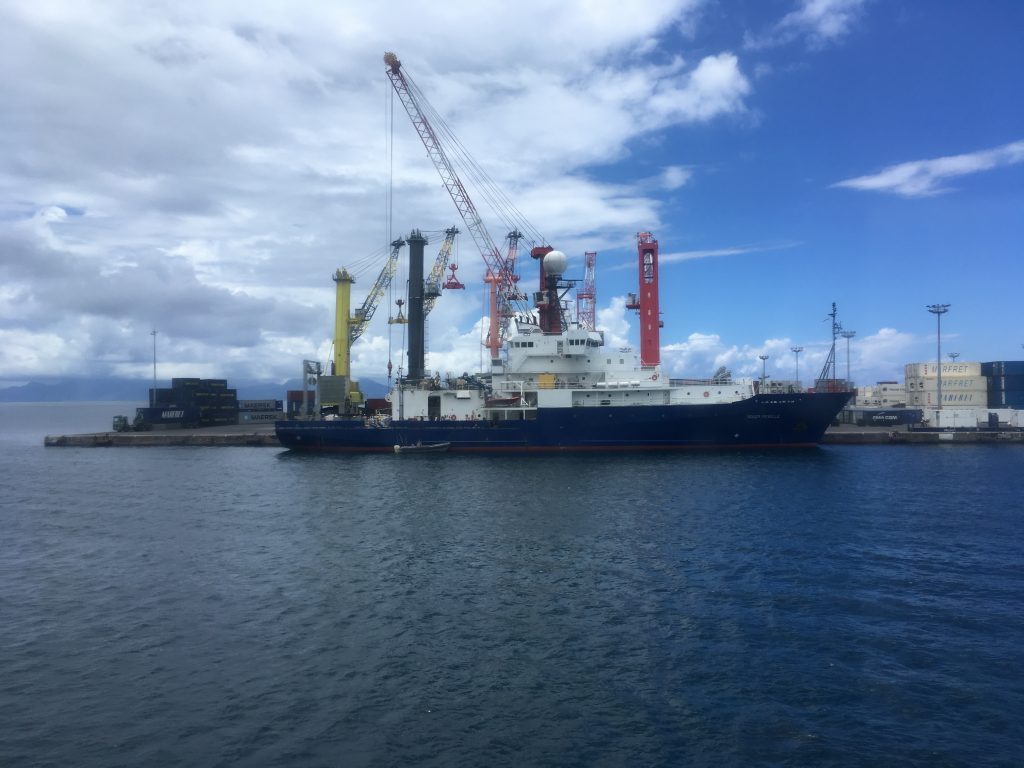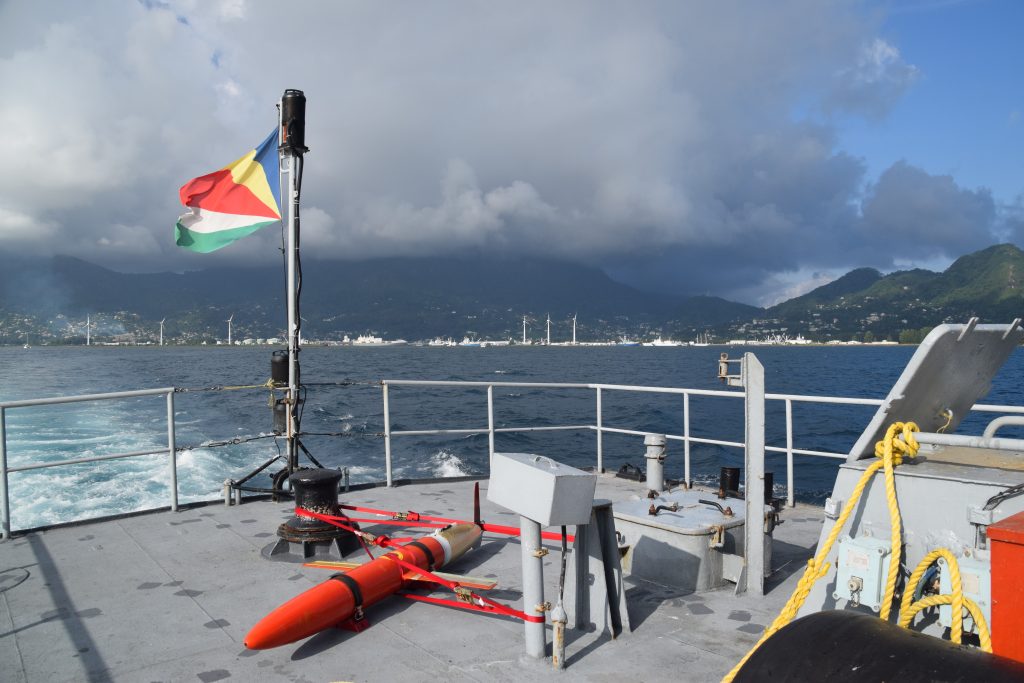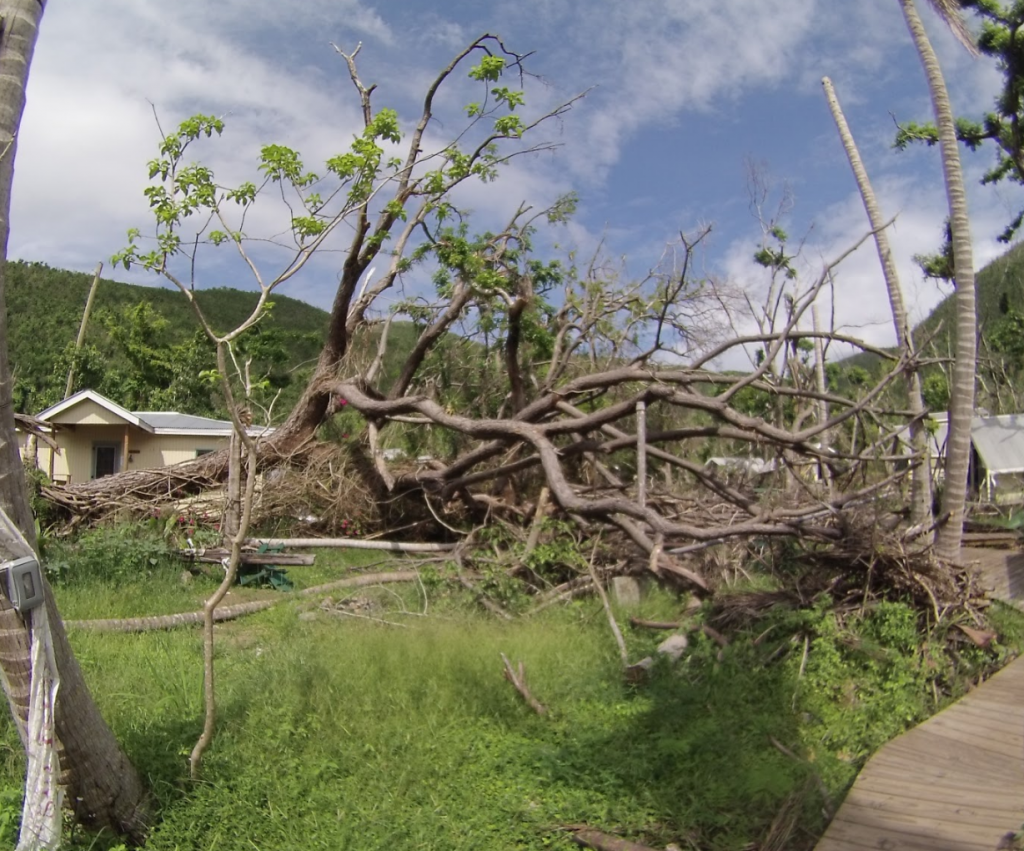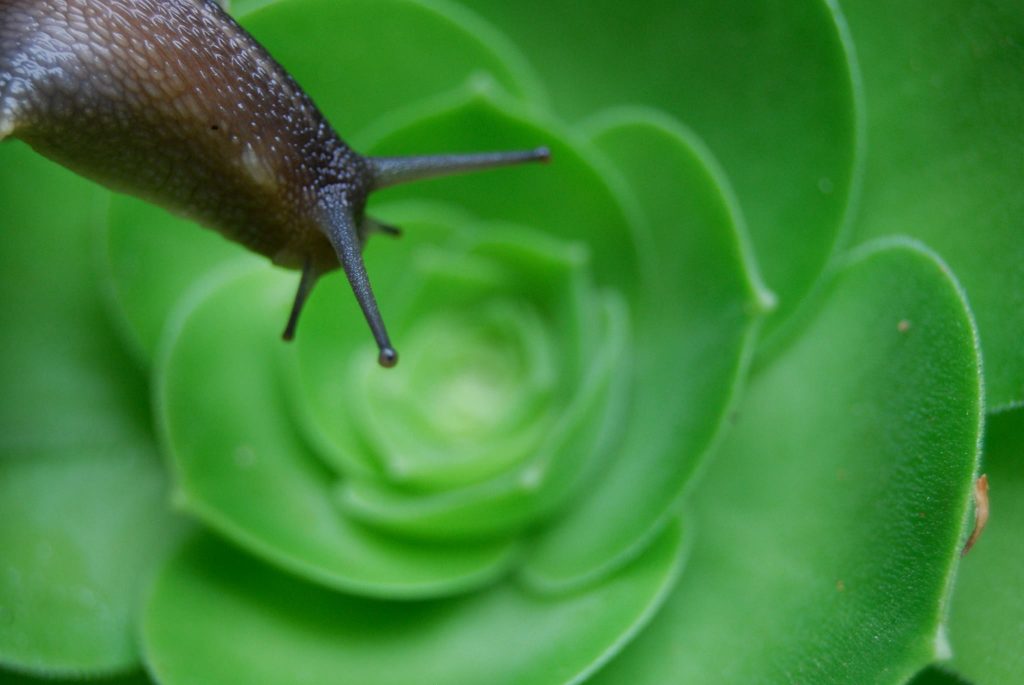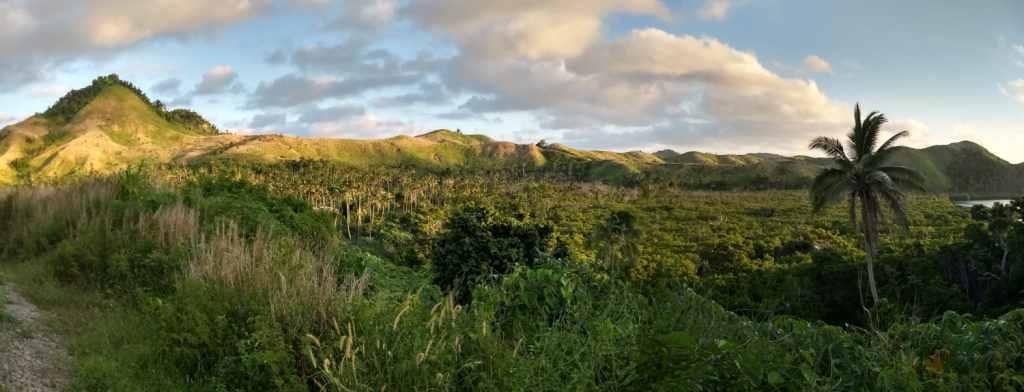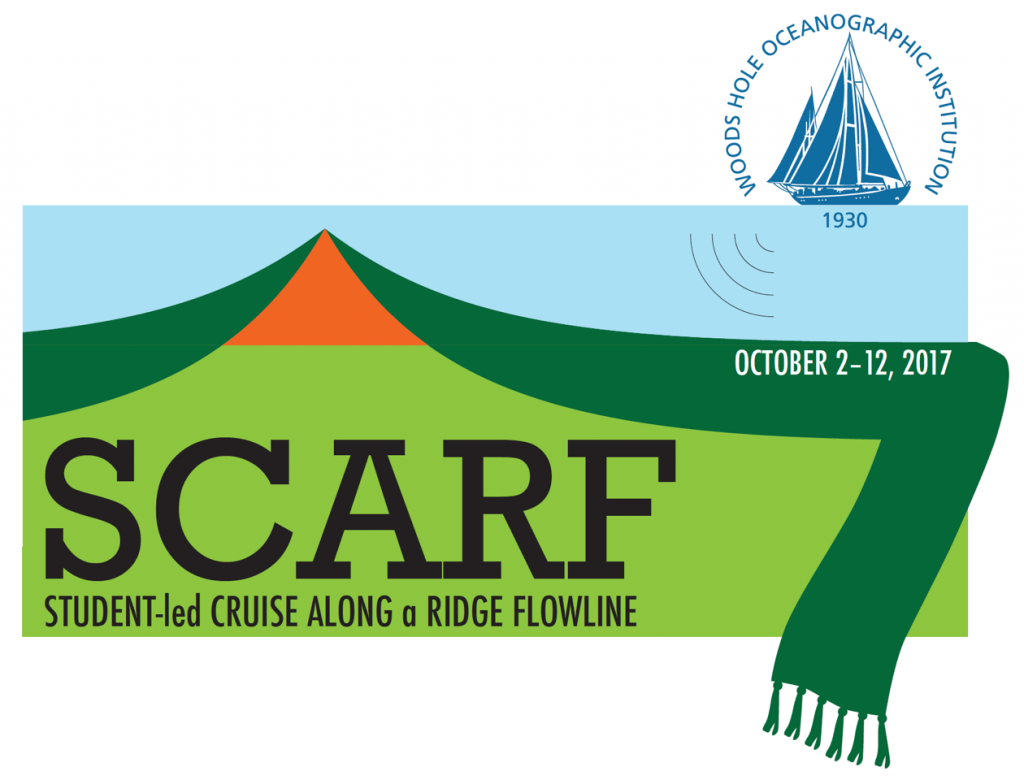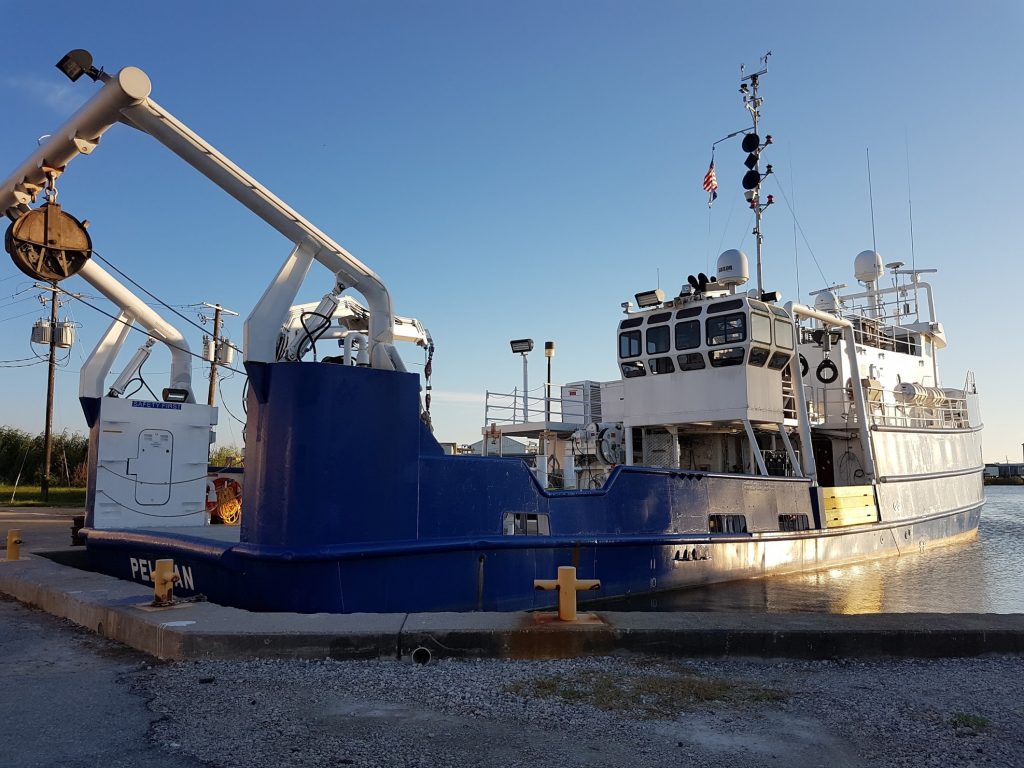Fieldwork
Combating a coral disease disaster with in-the-field DNA sequencing
Written by Cynthia Becker In the last six years, Stony Coral Tissue Loss Disease (SCTLD) has been taking over the reefs of Florida and the Caribbean. This disease originated near Miami, Florida, and has since traveled the entire extent of the Florida Reef Tract, down along the entire Mexican Caribbean Coast, and out to…
Read MoreFirst Descent: Thoughts, Feelings, and Memories from My Dive in Alvin
Written by: Lauren Dykman There’s a sense of finality as Alvin Pilot Bruce Strickrott closes and secures the hatch: for the next nine hours, we will have nothing but what we carry sealed inside. Looking out the viewports, I see the ocean and rising sun beyond the fantail, and the chase boat floating in…
Read MoreOceanographic instrument development, a first step to exploring the unexplored
Written by: Kalina C. Grabb Putting the exploration in oceanography The ocean remains largely unexplored. NOAA and National Geographic state that 80% of the ocean floor remains “unmapped, unobserved, and unexplored.” This is a decrease from just two decades ago, when 95% of the ocean was unexplored. While this appears like a lot of progress,…
Read MoreAll Work and No Play Makes for a Dull Oceanographer
Written by: Jennifer Kenyon People have very different definitions of the word “cruise.” The non-oceanographer imagines a large cruise ship with water slides, a happy hour, cute beverages with little umbrellas in them, and a journey that takes 5-7 days before dropping you off in a tropical paradise without a care in the world.…
Read MorePerks and challenges of international fieldwork: A glider deployment in the Seychelles
When I started working on a project investigating the Gulf Stream, little did I know that one day my job would bring me to the Seychelles. I knew that most of my PhD work would be focused on the North Atlantic, so dreaming of a trip to these lush, remote little islands in the Indian…
Read MoreDiving in the wake of a hurricane
Written by: Genevieve Flaspohler About the author: Genevieve Flaspohler is a PhD student in Electrical Engineering and Computer Science in the MIT-WHOI Joint program. She is a member of the WHOI Autonomous Robotics and Perception Laboratory (WARPLab) and researches machine learning and computer vision algorithms for autonomous underwater vehicles (AUVs). She is especially interested in…
Read MoreFollowing snails around the world
Written By: Lauren Dykman Many scientists can link their research interests or career trajectory back to a childhood fascination. The ability to recognize beauty and intrigue in the mundane and every-day is a talent strongest in childhood, and many scientists seem to maintain this ability throughout life. Such a childhood fascination struck me when I…
Read MoreDead Storm Hunting: Fiji and Vanuatu
By: James Bramante, PhD student in the MIT/WHOI Joint Program This blog is cross-posted on the Coastal Systems Group website. There’s nothing like arctic weather to make you nostalgic for tropical fieldwork. During the past month, temperatures dropped to 5 F (-15 C) in Boston and Cape Cod. With wind chill it felt like…
Read MoreSCARF 2017: A modern-day transatlantic crossing
At 16:00 UTC (12 noon, EST) on October 8 2017, midway across the Atlantic Ocean, Earth’s magnetic field strength dropped to 0. Had we just made an exciting new discovery? Was this evidence of an imminent geomagnetic reversal? Was a mysterious lump of magnetite on the seafloor cancelling out the ambient field?…or did the magnetometer…
Read MoreCoastal oceanography in the height of hurricane season
Written By: Mallory Ringham Oceanographic research cruises are typically planned months, if not years, in advance of sailing. So we often have to view cruise itineraries as suggestions rather than as definite plans, with an understanding that weather and equipment status may significantly impact scientific goals. On September 8, the CO2 Systems Laboratory from Woods…
Read More